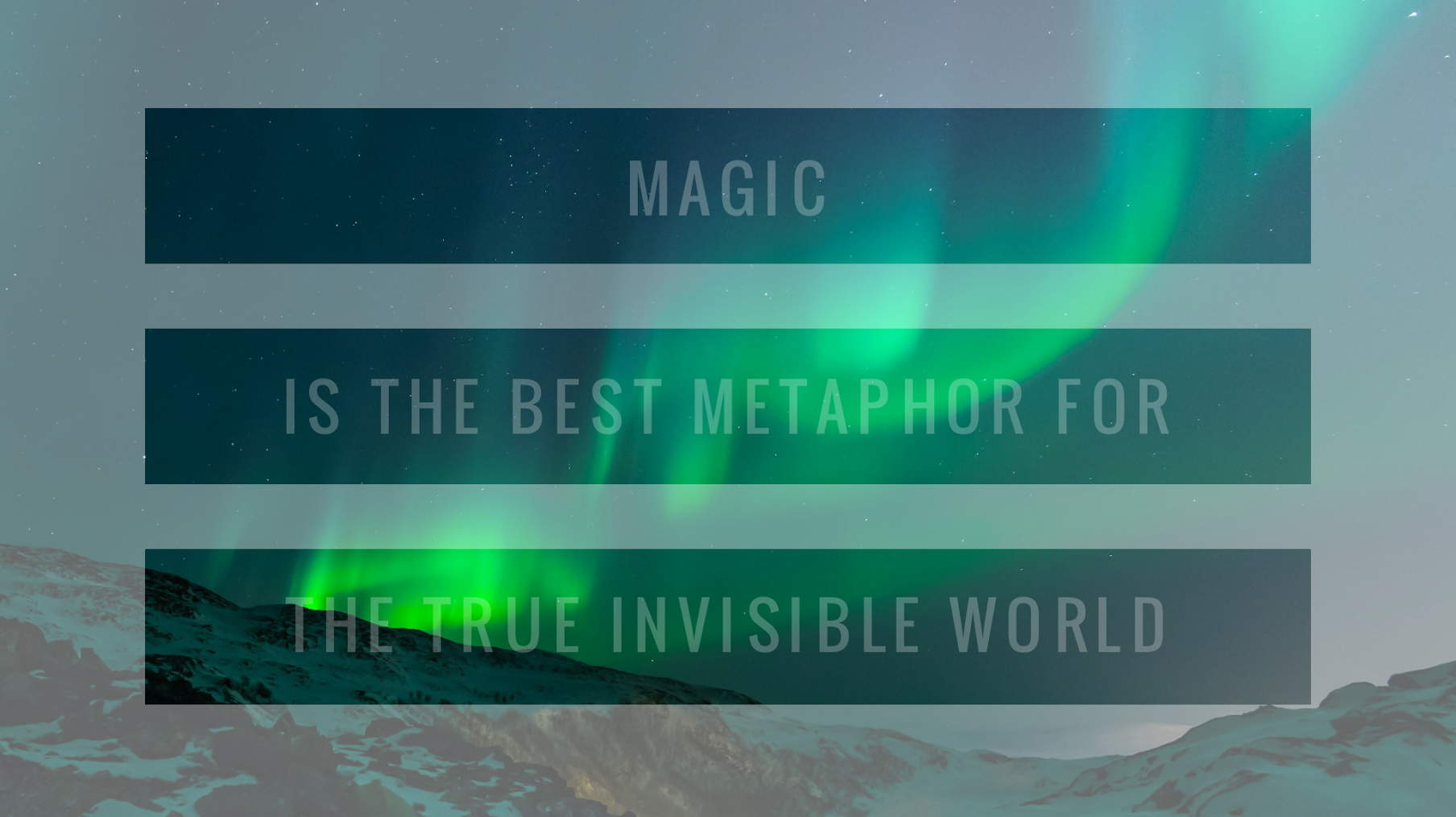Could there be anything less compelling for a young man than to learn that Jesus Christ is the Word? The Word? He couldn’t be The Sword or The Knight or The Griffin? Being the Word ranks somewhere around God identifying as The Laundry, or The Department of Motor Vehicles. At least until you learn about magic.
Magic, as a metaphor in fiction, is the single best means of understanding the invisible world. The parallels aren’t perfect—every metaphor breaks down eventually—but it’s hard to ignore the spiritual themes in The Philosopher’s Stone, Jonathan Strange and Mr. Norrell, or Sabriel.
My first introduction to the power of The Word came via Ursula LeGuin’s A Wizard of Earthsea. A classic in fantasy circles, Earthsea posits a world in which authority is given to those who know the “true name” of things. People, objects, creatures, and creation all respond when their true name has been called. A wizard who knows names can move mountains, summon dragons, and avert war.
To acknowledge that Jesus is the Word made flesh means Christ has authority over all things. He spoke, and was spoken into existence, at the Beginning. He is before all things, and in him all things were created. Jesus is the inspiration for all tales of magic. He’s what magic dreams of becoming. He’s the aspiration of fantasists and the icon of imagineers. He is what makes the Grail holy, Narnia speak, and Gandalf live. Of course if you don’t recognize these references you likely think I’m insane.
But I suggest you read John’s prologue again, preferably in the company of Earthsea, and say aloud, “Once upon a time, there was the Word…”
fossores
Related posts
Categories
Category Cloud
Tag Cloud
Recent Posts
- Victors and Victims November 6, 2018
- 3 Hacks for Happiness October 29, 2018
- Hope Against Death September 20, 2018
- The Shape Of The Cross September 19, 2018


